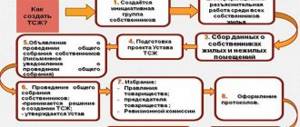The privatization process began in the 90s of the last century. This term refers to the process of transferring state property into private ownership. In 2021, changes were made to housing legislation, according to which privatization was recognized as unlimited .
But at the moment, someone is in a hurry to register ownership of the apartment, while others, on the contrary, do not consider it advisable. This is due to the fact that the privatization of housing registered under a social tenancy agreement has both its pros and cons .
The eternal question of whether it is worth privatizing housing or not occurs quite often and the answer depends solely on the individual situation of each citizen living under a social tenancy agreement.
Is privatization of an apartment mandatory?
Privatization implies the process of transferring state-owned residential property into the hands of the owner. The concept of “privatization” is described in more detail in Article 1 of the Law of the Russian Federation of July 4, 1991 No. 1541-1.
To privatize a living space or leave everything as is is an individual choice for each person. The right to privatize an apartment arises from a citizen who lives in an apartment registered under a social document. No one has the right to oblige the privatization of housing.
Since privatization has been extended indefinitely from 2021, citizens living in apartments under a social tenancy agreement have the right to independently decide whether to privatize housing and when.
Example
Sidorov A.O. lived with his wife and three-year-old son in an apartment registered under a social tenancy agreement. Together with his wife, they decided to privatize their home. After submitting the application for privatization and the available documents for the apartment, Sidorov A.O. refused to draw up a privatization agreement, explaining this with the following points: in the application of Sidorov A.O. did not mention his three-year-old son, and also did not provide written consent from his wife.
It is worth noting that privatization is not required at all for a cooperative apartment . This is due to the fact that an apartment purchased by a citizen in a housing construction cooperative is not state property. According to Russian legislation, payment of the share contribution in full is established as the basis for acquiring ownership of residential premises - clause 4 of Art.
218 Civil Code of the Russian Federation, clause 1, art. 129 Housing Code of the Russian Federation.
Cooperative apartment
Many people are interested in whether it is necessary to privatize a cooperative apartment. People don’t know why they should privatize it if they already have a document on ownership rights. A person receives papers indicating his rights when he completely buys out cooperative housing.
A cooperative apartment also needs to be privatized if you want to freely manage your housing. The process of repurchase and privatization are different legal procedures.
How to register ownership of a cooperative apartment - we will find out in this article https://realtyinfo.online/4716-oformlenie-prava-sobstvennosti-na-kvartiru
Is it worth privatizing an apartment?
Before making a choice related to the privatization of an apartment, you need to know the pros and cons of the privatization process itself and the consequences.
On the one hand, a privatized apartment in the future can be sold, exchanged, and benefited from various transactions, but on the other hand, such an apartment requires increased costs . The homeowner will pay real estate tax , which, in turn, has increased significantly due to its calculation based on the cadastral value of real estate, as well as incur expenses in connection with major repairs in an apartment building .
A citizen owner does not have the right to improve living conditions, unlike a tenant, and if he wants to change his apartment to housing with a larger area, this will be at his expense.
Low-income citizens may face financial problems in the future if they want to privatize their housing, so all the circumstances should be analyzed before resolving this issue.
Elderly pensioners living in municipal housing also have the right to privatization. In this case, citizens will be able to bequeath this housing to their children or grandchildren.
But there are also negative aspects : if suddenly the apartment is destroyed as a result of a flood, fire or other disaster, the state will not provide new housing. The owner of a destroyed home must take care of restoring the apartment himself.
Pros of privatization
First of all, the main advantage of privatization is that the resident of a privatized apartment becomes a full owner . Having received this status, a person has the right to dispose of his property at his own discretion:
- sell;
- give;
- exchange;
- to rent;
- pass on by inheritance.
In addition, the owner of such an apartment can register or deregister a person, arrange for the redevelopment of a residential premises receive a loan secured by a privatized apartment, etc.
It is worth noting that the privatization of an apartment can be cancelled, in other words, deprivatized .
This means that a citizen has the right to renounce ownership of an apartment and again enter into a social tenancy agreement with the state. But it is worth knowing that such a transaction can only be made once.
Unlike a non-privatized apartment, it is almost impossible to evict the owner for debts But you should know that in any case, you can collect the existing debt from the owner for utilities without certain problems in court, but it will not work to deprive the owner of the privatized housing itself.
If it happens that the house in which the privatized apartment is located is subsequently recognized as unsafe, then in exchange for the old housing the owner will be provided with another one of equal size.
Disadvantages of privatization
The owner is responsible for privatized housing . If unexpected circumstances suddenly occur: a fire or flood occurs in a municipal apartment, then in this case the damage will be compensated by the state. If the apartment is privatized, the repair and restoration of housing will be the responsibility of the owner of the damaged residential premises.
Payment for real estate is also a big disadvantage during privatization - every year in our country the real estate tax increases, and the amount of contributions for the maintenance of housing and its repairs also increases.
elderly person lives in a privatized apartment and does not have financial support from relatives or other persons, then this may incur large financial costs for him. But if the housing is not privatized, then the state will pay for the costs of major repairs of the house.
Questions and answers
During the privatization of a specific premises, various nuances may arise.
How many apartments can one person rent?
One citizen can participate in privatization only 1 time.
This rule is enshrined in Article 11 of Law No. 1541-1.
There is only one exception: the first time a person participated in privatization was before reaching 18 years of age. Then he has the right to contact the property department one more time.
Is it possible to privatize an apartment if there is other property?
The property status of a citizen is not taken into account when deciding on privatization.
A person may have several residential premises and contact the property department with a corresponding application.
If all the requirements of the law are met, then the municipal authority does not have the right to refuse.
Refusal
In some cases, government agencies give a negative response to a citizen’s request. The main reason is that not all documents have been submitted.
Most often, citizens who live in departmental housing receive refusals.
The situation is as follows: the apartment is on the balance sheet of the ministry or a certain institution, and was provided to the citizen before 1991. At the same time, the institution issued a legal act by virtue of which housing on the balance sheet of the organization cannot be transferred to private ownership.
However, Law 1541-1 has greater legal force than acts of ministries.
And in this document there are no reservations that relate to such cases. Restrictions have been established only regarding housing in military camps and office premises.
How to file a claim
The claim must contain the following information:
- name and address of the court;
- name and address of the defendant;
- FULL NAME. and the applicant's residential address;
- information on the basis on which the citizen uses the premises (indicating the details of the social tenancy agreement);
- information about the apartment: where it is located, who owns it, area and number of rooms;
- information about those registered in the apartment;
- data on how and when a citizen applied for privatization;
- information about the refusal: document date, justification;
- assertion that the refusal has no legal basis and violates the citizen’s right to privatization;
- reference to articles 2 and 8 of law 1541-1;
- the requirement to recognize the refusal of a state body as unlawful;
- requirement to recognize the plaintiff's ownership of the apartment;
- list of attached documents;
- date, signature, surname and initials of the applicant.
Photo: sample statement of claim
Do I need to pay for major repairs of municipal housing?
The formation of a cash fund for major repairs is the responsibility of the owner of the residential premises.
How to register the privatization of an apartment through the MFC? How does the process of privatization of a garden plot take place? Find out here.
Have the conditions for apartment privatization changed after March 1, 2020? Read on.
This provision is contained in Article 154 of the RF LC.
A citizen who uses an apartment under a social tenancy agreement does not have to make these deductions.
Is it possible to apply if there are debts on utility bills?
In some regions, it is required to submit an extract from your personal account along with the application.
However, there are no restrictions in the legislation in case of debt on housing and communal services.
The apartment with debts to service organizations will be transferred to the new owner.
Owning an apartment is a benefit for every person. The negative aspects in the form of property taxes and deductions for capital repairs cannot outweigh the advantages that real estate ownership provides.
How many apartments can one person privatize?
Every person who lives in an apartment on the basis of a social tenancy agreement has the right to acquire this living space as his own property through privatization. According to the law, housing can be privatized only once . But minor citizens can take part in privatization again register another municipal property upon reaching adulthood .
If those registered in the apartment own another residential premises, this does not serve as a restriction on participation in the privatization process. All citizens living in housing under a social tenancy agreement have the right to one-time privatization, regardless of the number of their own square meters.
family members of the tenant of the premises and citizens who do not have family relations with the tenant, but are registered participate in the registration of ownership of the apartment.
Other rights and obligations of family members of the tenant regarding the occupied residential premises are contained in Art. 69 Housing Code of the Russian Federation.
Is it possible to privatize an apartment if there is other property?
According to Article 2 of the Law of the Russian Federation “On the privatization of housing stock in the Russian Federation” dated July 4, 1991 No. 1541-1, any citizen of the Russian Federation who has the right to use residential municipal premises on social rental terms has the right to purchase it on the terms provided for by law.
The presence of ownership rights to other real estate objects (apartment, residential building, etc.) does not in any way affect the right to privatize the apartment.
Privatization assessment
The prospects for privatization need to be assessed on a case-by-case basis. To do this, it is worth considering:
- condition of the house,
- the emergence as a result of joint shared ownership,
- the need to improve housing in the near future,
- financial capacity to maintain housing,
- current cadastral and market value of housing,
- plans for redevelopment in the near future,
- plans for sale, gift or inheritance.
There may be other circumstances that may influence the decision. It's worth looking at how this works with an example.
Housing in houses recognized as unsafe cannot be privatized. The fact of recognition becomes such from the moment the relevant resolution of the local administration is signed. Until then, it is possible to privatize the apartment, the question is whether it is necessary. To do this, you need to take into account factors:
- In accordance with Art. 32 of the Housing Code of the Russian Federation, when demolishing emergency housing, owners receive exactly the same area as they had. Employers have the right to count, at a minimum, on the social norm in the region. This is from 12 to 18 square meters. As a result, you need to take into account how many people are registered in the apartments and multiply by the norms due to them. It will not be possible to register new residents in such housing. If it turns out that the result is less than the demolished apartment, then privatization should definitely be postponed. When relocating, the family will receive more than they have without any additional payment, then the apartment can be privatized. If the available area is larger, then you should hurry with the execution of the privatization agreement, as there is a risk of getting less in the end.
Do I need to pay for major repairs if the apartment is not privatized?
A citizen who lives in residential premises on the basis of a social tenancy agreement is obliged to pay for it on time and maintain it in proper condition (Article 678 of the Civil Code of the Russian Federation). But according to Art. 158 and art. 169 of the Housing Code of the Russian Federation, only owners of residential and non-residential premises in an apartment building are required to make monthly payments for major repairs.
In this case, in a municipal apartment the owner is the state ; accordingly, the tenant is exempt from the obligation to pay for major repairs.
Disadvantages of privatization
Of course, there are disadvantages and drawbacks. Among them:
Increase in the volume of utility payments. In most cases, homeowners pay much more, including for major repairs of an apartment building and the maintenance of their share of the residents' common property, for example, for water for washing floors on the floor. The size of other utility payments will also be higher.
Taxation of real estate . The tax is paid annually by owners based on the cadastral value of the property.
Over the past few years, legislators have been planning to transfer calculations not to a cadastral basis, but to a market one. If in the provinces this will only benefit many Russians, then for the capital’s residents, with huge housing prices, this burden may become unbearable. Already now in the regions there are cases when local authorities simply force owners out of plots and dachas, setting a deliberately inflated cadastral value for tax purposes. As a result, the owners have to fight long and hard to reduce the cadastral value or sell the dacha for next to nothing. This practice is not difficult to extend to apartments.
The owner can improve living conditions only at his own expense. In the case of emergency housing again, renovation or seizure of the apartment for other reasons, the owner has the right to receive the same number of meters as he had. The employer can take advantage of this situation and improve his conditions for free, “adjusting” the meters to the social norm.
Is it possible to privatize an apartment with debts on utility bills?
Every citizen of the country can register municipal real estate as their own, but the law says nothing about unpaid receipts for utility services. Therefore, a utility debt does not deprive a citizen to carry out the process of housing privatization .
Many citizens are faced with a situation where, when applying for an intention to privatize an apartment, service employees refuse to issue the necessary documents due to debts.
In this case, specialists act unlawfully; their actions can be appealed in court.
Naturally, all government services strive to influence the future owner of the residential premises and force him to pay all debts, but in this case their actions are not justified.
Concepts
To better understand the privatization process, it is necessary to define the main terms.
Privatization of housing is the free transfer of public housing into the ownership of citizens who permanently reside in it legally.
Residential premises - an apartment, house, a dedicated part of a house or apartment, specially designed for people's living.
Emergency housing is a room that is located in a building; half of the load-bearing structures are classified as emergency and pose a threat to the lives of residents.
Official housing is premises that belong to a specific organization and are provided to employees while they are working.
Who is the heir if the apartment is not privatized
If a citizen lived alone in an apartment under a social tenancy agreement and his close relatives were not registered in it , then they have no right to inherit such an apartment. In this situation, the apartment will be transferred to the ownership of the state .
If a person can prove that he was a relative of the deceased testator and lived with him until his death, then in court he can try to obtain permission to continue living in such an apartment. The court will take into account the opinions and, based on the following conditions, make a decision in favor of the heir if: the heir if:
- he and the testator are close relatives in relation to each other and lived together.
- the heir was registered in this apartment, was a dependent and ran a common household with the testator.
In this case, you will need not only to carry out the standard procedure for entering into an inheritance, but also to reissue all the necessary documents for the apartment and become the next tenant.
After these actions, such a social tenant has the right to privatize the apartment. Only if such conditions are met can you become the owner of previously non-privatized housing.
Question
Who pays for repairs in an apartment occupied under a social lease agreement and damaged as a result of a fire?
Hello! I live in an apartment under a social tenancy agreement. Recently, my neighbors had a fire, and the apartment I live in was also slightly damaged. Who should carry out the repairs?
What rights are provided by law?
gives citizens the right to live in an apartment under general conditions
. Moreover, a citizen has the right to move in and register all members of his family in the apartment. The only mandatory condition: each family member must have at least the square meters required by law. Exception to the rules: children who have not reached the legal age (18 years) who are registered with their parents or other relatives.
A citizen living in , can exchange it
. But, the only condition: only for an apartment of the same type (that is, municipal). The law does not provide for the replacement of public housing with private housing.
According to the Housing Code, it is possible to exchange municipal housing only with the consent of the state authorities of the region that owns the residential premises. In addition, permission is required from all citizens living in the apartment legally. The main point: usually, housing that is in disrepair or in a house in such a condition is not subject to exchange.
Also, a citizen living in municipal housing has the right to privatize it into ownership
. This issue is regulated exclusively by the norms of housing law, in particular on privatization. This gives a person the right to obtain his own housing, dispose of it at his own discretion, and live in it with all legal rights.
Municipal residential premises, like any other, can be rented out
. In this situation, the landlord will be the owner of the apartment (that is, the state represented by its representative in a specific area). Moreover, the rental agreement applies not only to the tenant, but also to all members of his family. Thus, in the event of the death of a tenant, his relatives can inherit the right to municipal housing without alienating it in favor of the state.
How to privatize a room in a municipal apartment
To privatize a room in an apartment, it is necessary to determine which housing stock the property belongs to. The room is subject to transfer of ownership to citizens if the housing is of a communal type
, and it must also be
municipal.
To privatize a room in a municipal apartment you will need the following list of documents:
- Passports, birth certificates of all persons registered in the residential premises.
- Technical documentation for the room.
- Information that the residents have not previously privatized the property.
- Social tenancy agreement.
- Certificate of absence of arrears in payment of utility services.
- Extract from home book.
- An application, the form of which is established by the local authority. All adult residents must sign the document.
- If any of the residents do not want to participate in privatization, it is necessary to obtain a refusal certified by a notary, which can only be given by adults and capable persons. Parents are not allowed to formalize a waiver on behalf of their children.
The collected package of information is sent to the housing department of municipal authorities, which, no later than 2 months
makes a decision on consent or refusal to privatization.
About the law
The Law on Municipal Housing contains only 9 chapters
, each of which regulates one or another issue that may arise in the process of using municipal property. In most cases, when conflicts arise, they refer to it. In addition, another main regulatory act is the Housing Code, which also contains articles on municipal housing.
It is difficult for a person without special education to understand modern legislation. Lawyers specializing in housing law can talk about all the conflicts of laws, explain this or that part of it, and present as much information as possible in accessible language.
Despite the fact that the privatization law has been in effect for decades, there is still a huge amount of non-privatized public housing in Russia, and the highest percentage of residential premises are registered under a privatization agreement in large cities. For example, in the capital, by the end of 2021, more than 80% of municipal apartments have been privatized. Along with the registration of residential premises as property, there is an opposite definition - deprivatization, i.e. return of the apartment to the ownership of municipal authorities or the state on a voluntary basis or by decision of the judicial authorities. What is deprivatization? Why are some citizens deprivatizing their own housing? What are the pros and cons of this procedure?
Deprivatization is the transfer by the owner of the rights to housing to the municipality or the state, with the preservation of the right of lifelong residence under a social tenancy agreement. It is worth noting that once a property has been deprivatized, it cannot be privatized again, because The opportunity for privatization is provided to a citizen once. After the transfer of rights to real estate has been completed, the citizen cannot carry out any transactions with it, i.e. sell, exchange, donate, pledge, etc.
Deprivatization of residential premises is permitted only after receiving written consent from all owners of this object or permission from the guardianship and trusteeship authorities if one of those participating in the privatization is disabled or a child.









